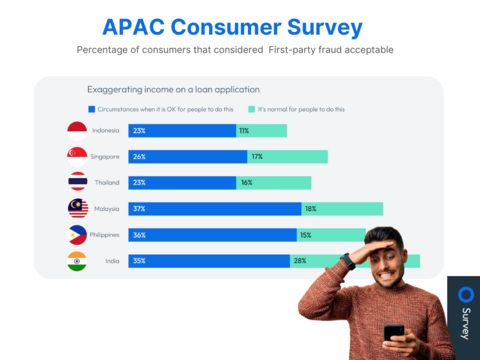FICO Survey: Alarming Acceptance of ';Liar Loans' Among Thai Consumers
Close to 1 in 4 Thais think it’s OK to deliberately mislead on personal loans, mortgages, auto and other applications.

Highlights
-
Two in five Thais (
39% ) think it’s OK or normal for people to exaggerate their income on loan applications -
One in seven Thais (
14% ) believe it’s normal for people to deliberately misrepresent their income on mortgage applications -
Falsifying insurance claims is viewed as the most taboo form of fraud, with two in three Thais (
68% ) believing it is not acceptable
Global analytics software leader FICO today shared its latest global consumer fraud research, which revealed alarming attitudes toward first-party financial fraud both globally and in the Thai market.
The survey finds that while most Thai respondents view the misrepresentation of information while applying for financial products and making insurance claims unacceptable, a sizeable portion of the population feels otherwise.
Two in five Thais think it is normal or acceptable in some cases to misrepresent their income on an application for a bank account (
These sentiments closely align with global attitudes. The survey reveals that the majority of consumers (
“Consumers must understand that misrepresentation of information when applying for financial products can lead to serious consequences, even if done unintentionally,” said Aashish Sharma, APAC segment leader for risk lifecycle and decision management at FICO. “Banks can tackle the real problem of ‘liar loans’ by improving their ability to detect inaccuracies, enabling safeguards from bad debt while effectively preventing customers from committing fraud.”
More information: https://www.fico.com/en/latest-thinking/ebook/consumer-survey-2023-digital-banking-customer-preferences-and-fraud-controls
Acceptance of Application Fraud Rings Alarm Bells for Lenders
The FICO survey reveals that a quarter of Thai consumers (
Even when a mortgage application from an existing customer appears legitimate on paper, the established banking relationship can be exploited to commit fraud. By exaggerating income, such as inflating self-employment earnings or overstating bonuses, as well as omitting debts or misrepresenting personal circumstances, applicants can manipulate the loan process. This makes it difficult for lenders to detect these discrepancies without thorough and proactive verification measures.
“Combatting application fraud requires banks to elevate their risk assessment strategies,” noted Sharma. “This should include integrating comprehensive data analysis, employing anomaly detection analytics, and enhancing their ability to detect early signs of sleeper fraud or impending bust outs.”
Falsifying Insurance Claims Is Most Taboo
According to FICO’s research, falsifying insurance claims is viewed as the most taboo form of fraud, with around two-thirds of consumers globally believing it is never acceptable to exaggerate the value of stolen property or add false items to a claim. This sentiment is echoed by two in three Thai consumers (
Matching global trends, attitudes shift regarding other financial products. Half of consumers globally, including more than half of Thais, feel it is unacceptable to exaggerate income on a mobile phone contract (
“The FICO survey reveals that many are adapting their views on application fraud based on circumstances,” noted Sharma. “Financial institutions must continuously adapt their fraud prevention strategies to keep up with these evolving trends, ensuring that customers are not inadvertently led into unethical or illegal activities.”
The survey was conducted in November 2023 by an independent research company adhering to research industry standards. 1,002 Thai adults were surveyed, along with approximately 12,000 other consumers in
View source version on businesswire.com: https://www.businesswire.com/news/home/20240923471658/en/
Lizzy Li
RICE for FICO
+65 9034 7768
lizzy.li@ricecomms.com
Saxon Shirley
FICO
+65 9171 0965
saxonshirley@fico.com
Source: FICO







